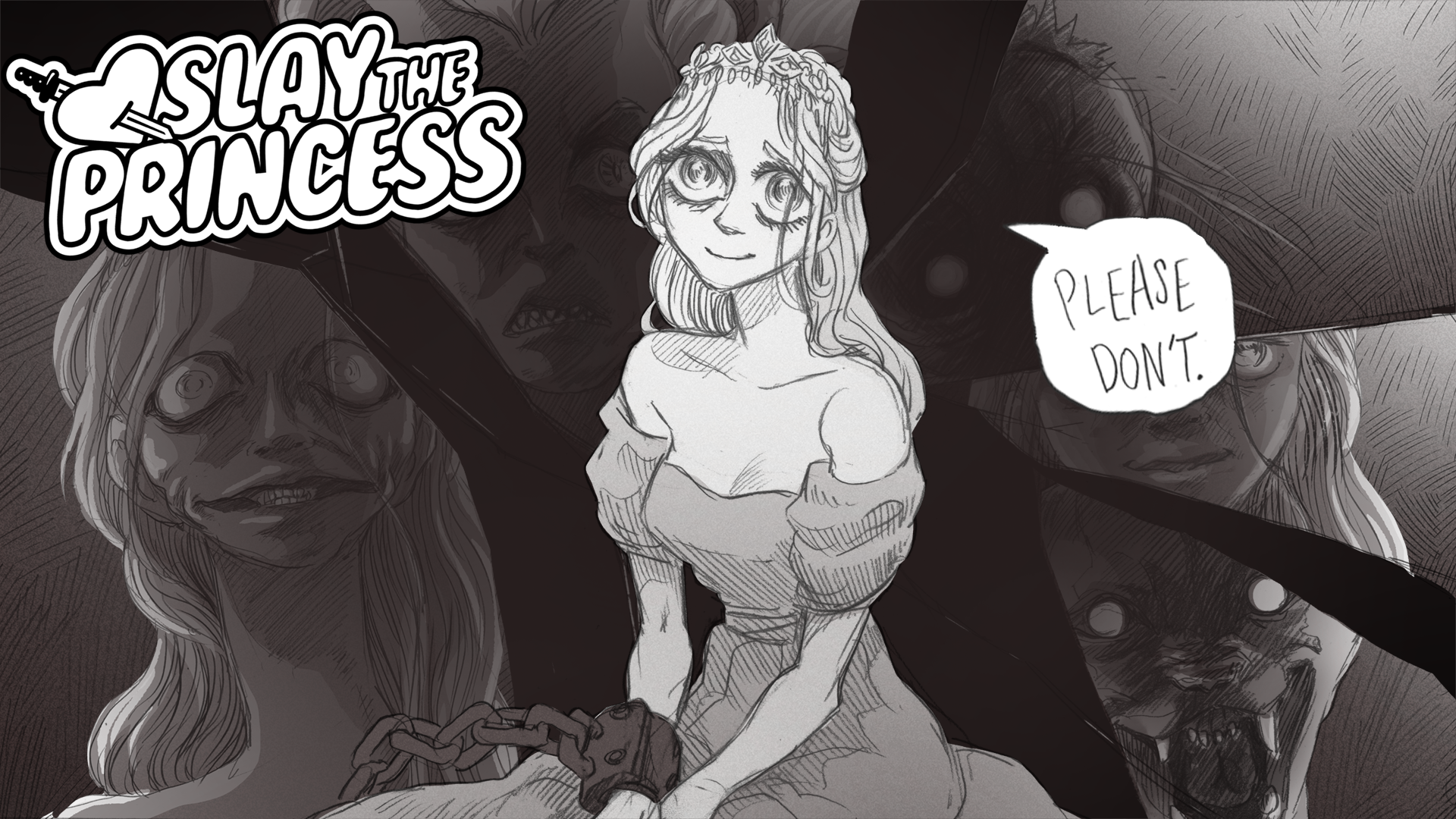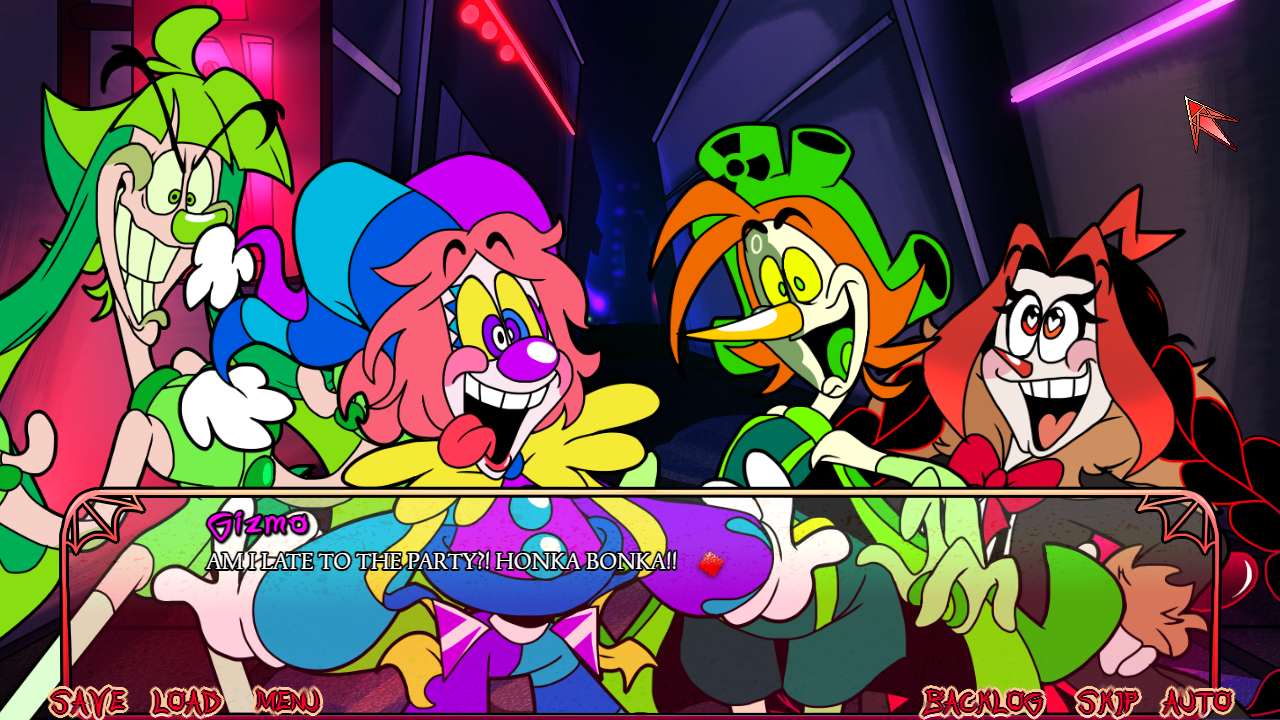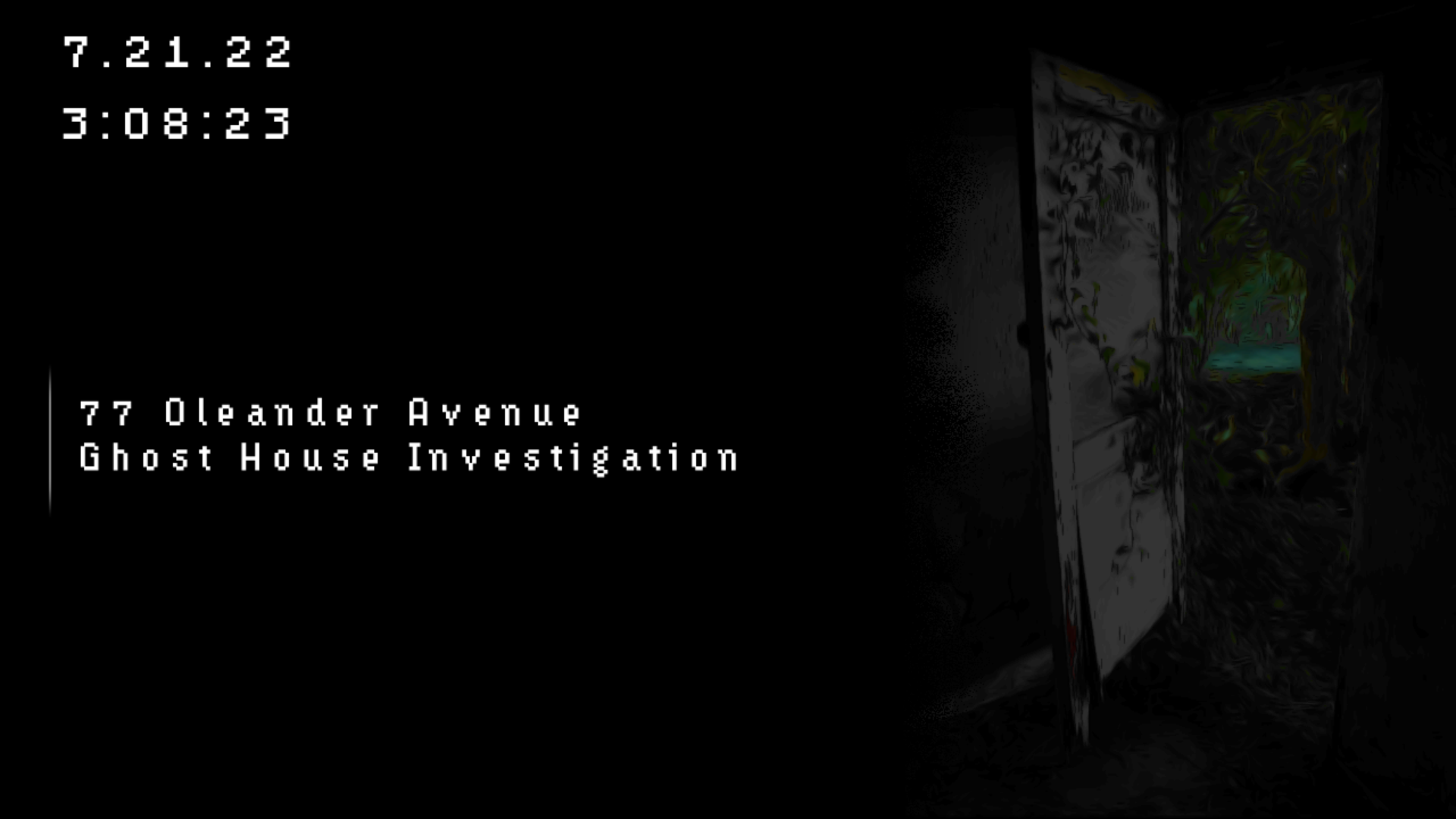
Queer Coming of Age Horror and Comfort in We Know the Devil
I first played We Know the Devil at 4 a.m. and had a feeling I struggled to describe.
The game, a visual novel written by Aevee Bee and developed and published by Pillowfight, takes place over the course of one very unsettling night at summer camp. As the three queer protagonists — Neptune, Venus, and Jupiter, names inspired by the heroes of Sailor Moon — sat in a decrepit cabin waiting to confront the Devil, I should have been scared of what was coming. And I was.
But I was also strangely… comforted in their presence?
We Know the Devil takes place in a very odd summer camp. The three protagonists, a makeshift team of “scouts” (another Sailor Moon reference), sit by the fire and are forced to sing toxically positive songs with the other campers and a cloying, vaguely threatening counselor. The three are then chosen to keep watch for the Devil overnight.
If you’re confused, that’s sort of the point. We Know the Devil doesn’t waste time with exposition or much backstory. All we need to know is that the kids are armed with radios to both talk to “God” and fight the Devil if need be. Over the course of 12 hours, they struggle to stay awake, get drunk, play Truth or Dare, investigate strange noises, and ultimately, confront the Devil.

The game mechanics, while simple, have complex consequences. Like most visual novels, there’s not a ton to do other than read and enjoy the story, but at certain points, you’ll have to choose to do an activity that only two of the three characters can participate in. Someone is always left out, whether it’s Venus, a shy trans girl, Jupiter, a self-conscious overachiever, or Neptune, a brash, blunt young woman with a mean streak to hide how much she cares. At the end of the game, whoever was excluded the most is transformed by the Devil into a grotesque monster.
It’s a pretty stunning way to show the hurt and comfort we experience as young people. We make friends, we lose them, we feel left out, we lash out, we burn bridges. But we can also learn and grow, and sometimes we are able to transcend the pettiness and cruelty that comes with adolescence.

There’s a “true ending” in We Know the Devil, one that caught me by surprise and completely justified the weird feeling of comfort I felt throughout this spooky game. If you’re careful not to exclude anyone too much, there’s a surprise waiting at the end of the night. It’s a staggering, incredibly queer message that flips body horror on its head and inverts the impending dread of the Devil’s arrival with that of euphoric comfort.
I won’t spoil it more than I already have. But this game, with its ’90s zine aesthetic — the art by Mia Schwartz contrasts overexposed photography with sketched manga-style characters and the score by Alec Lambert is a synthy dream — is an artistic achievement in trans empowerment, one that takes incredibly simple game design and infuses it with a late-20th century internet aesthetic and creates an experience wholly unlike anything I’ve played before.
If We Know the Devil interests you, check out DreadXP for more




